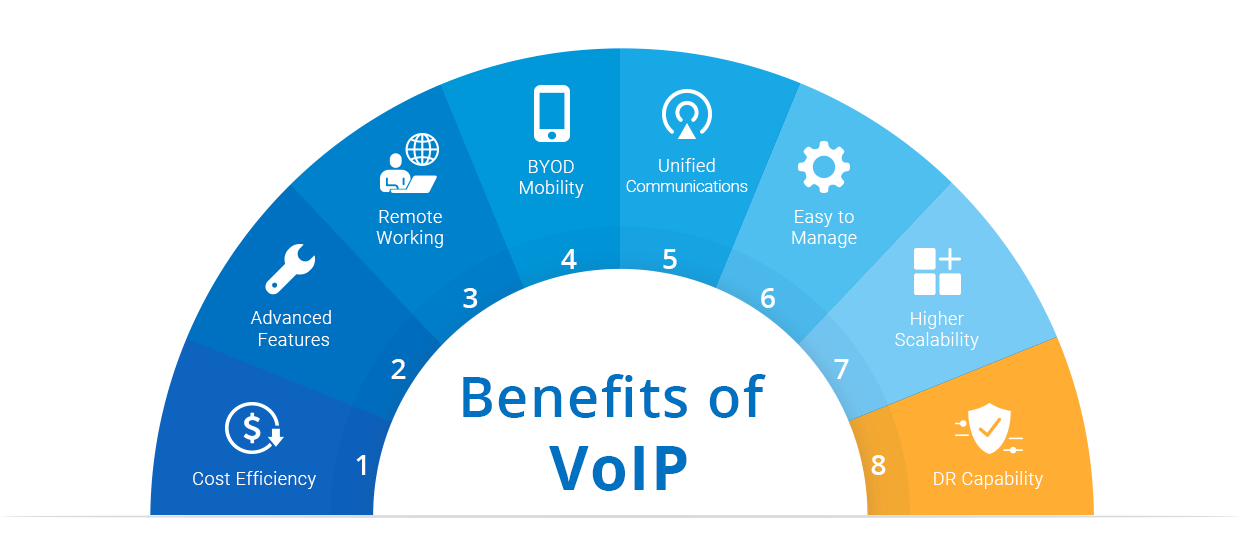VoIP is a powerful tool for sales that can help increase leads and boost customer retention. It works through the internet instead of telephone lines, eliminating costly roaming and long-distance charges.
It offers advanced features such as simultaneous ringing, voicemail to email, and more. It also allows your employees to work remotely, providing greater flexibility for businesses.
Cost-effectiveness
VoIP offers many cost-effective benefits for business owners. These include a unified inbox for all voicemails that can be transcribed to email, unlimited calling, and videoconferencing. However, there are a few disadvantages to using a VoIP phone system. One is that you can’t be reached on your business number if your internet connection goes down. Another is that if you’re on vacation, your clients and colleagues won’t be able to reach you immediately. They will get your voicemail, which may be difficult to sift through when you return.
VoIP is a more economical option for long-distance calls, especially international ones, and can reduce your company’s monthly phone bill by up to 45 percent. Furthermore, a VOIP phone system can be easily installed without the need for expensive hardware. It also allows employees to work from home, or at different locations, without losing access to the office phone line. This can help improve productivity and reduce overhead costs.
Convenience
VoIP technology uses software infrastructure instead of copper wires, and it is more scalable than traditional landline systems. It’s also more affordable for businesses with rapid growth. However, it’s important to make sure that your business has the proper hardware and bandwidth to support your VoIP network.
The quality of a VoIP call is dependent on the Internet connection. Using low-quality or outdated equipment can cause delays, echo, and jitter. Additionally, the quality of a VoIP call can be affected by power outages. If a company loses power, the VoIP system will be down until the power is restored.
Most VoIP platforms have user interfaces that look and feel like the built-in phone apps your team members use on a daily basis. This means there’s a far smaller learning curve for new employees, and you can reduce your training costs. In addition, VoIP allows users to block selected calls and redirect incoming calls to any device linked to their number, including their home phone.
Scalability
VoIP technology offers a more scalable and reliable solution to business communications than traditional landlines. It uses existing Internet infrastructure, making it easy to add lines when needed. It is also more cost-efficient than installing and maintaining traditional telephone lines. Plus, it comes with a host of other features like call forwarding, blocking, and transcribed voicemails to email.
VoIP requires a high-speed Internet connection with low latency to ensure quality. A slow or unstable network can lead to call failures, dropped calls, and jitter. Jitter occurs when packets containing voice data arrive at different times, and is mitigated by using QoS mechanisms to prioritize VoIP packets.
Lastly, VoIP systems can be integrated with other software such as Customer Relationship Management (CRM) to help sales teams track and manage their leads. This enables them to deliver better service and increase efficiency. It can even save businesses money by reducing the need for dedicated PBX lines. For example, sales representatives can easily check their schedule and availability by simply looking up a contact.
Security
VOIP is a lot more secure than traditional phone lines because call data travels over the internet and not on a regular telephone line. The calls are encrypted so that hackers can’t listen in or intercept the data. Having said that, like any other internet application, it is vulnerable to malware and viruses.
The advantage of using a VoIP platform is that it’s intuitive and acts much like the built-in phone apps your team members already use on their smartphones or tablets. This means that your team has a smaller learning curve and you can save on training costs.
The end-to-end encryption feature is also a plus for security. This ensures that only the sender and receiver can access calls and messages. This eliminates the ability for servers, ISPs, and hackers to access your communication. It also helps to protect your business from SIM swaps which can cause your phone numbers to change to another telco provider.



